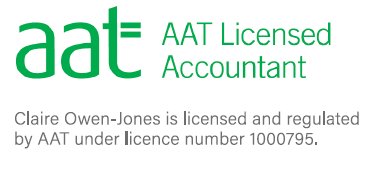When you first begin to trade, you may question whether you need to set up a business bank account or whether you can use your personal bank account.
As business bank accounts typically have charges attached to them, it can make sense to try to avoid these costs and using a personal account is an easy way to do this.
However, there are reasons why you may want to open a business bank account.
Do I need a business bank account if I trade through a Limited Company?
The short answer to this question is yes.
If you trade through a Limited Company, not only must you use a business bank account, the account must also be in the Company’s name.
This is because any money that the Limited Company makes, does not belong to you. It belongs to the Limited Company.
So, if you hold the Limited Company’s money in one of your own bank accounts, the money will have to be treated as though you have withdrawn it from the Company and that can have tax consequences.
This is worth keeping in mind if you decide to put money aside for corporation tax. Every bank account, even savings and deposit accounts, must be in the Limited Company name.
Do I need a business bank account if I am self-employed?
The quick answer to this one is no. However, there is a little bit of greyness here.
HMRC do not require that you use a business bank account, so you do not have to. Many self-employed people choose not to.
However, your bank may feel otherwise. So, if you are doing the sort of work that has one or two invoices a month, regular direct debits, the sort of thing that isn’t dissimilar to the activity in your personal account then you may want to risk it.
But if you have an online shop or a business that has lots of transactions, you could be breaking the bank’s terms and conditions if you try to avoid their fees and use a personal account.
But I can’t make you use a business bank account, because you don’t have to.
If I don’t have to use a business bank account, why should I?
There are two reasons why I recommend that you use a business bank account.
- It makes bookkeeping a lot easier
- You can see how your business is performing quicker
How can a business bank account help with bookkeeping?
One of the downsides of combining your business and personal income and expenditure is that when it comes to doing your bookkeeping and preparing your tax return, there will be a lot of transactions that you don’t need.
This means that you will need to go through your statements and pull out all your personal income, such as your salary if you also have employment income, child benefit and so on. Also, your personal expenditure such as household bills, weekly shops, gym memberships, Netflix, everything.
Even if you use accounting software, that will give you additional transactions to code to drawings.
It’s not the end of the world, but it’s extra work.
How can a business bank account help me to monitor how my business is doing?
If you use accounting software then providing you do your bookkeeping regularly, this should be able to give you a clear picture of how your business is performing.
But if you don’t do regular bookkeeping, then your bank account will be your first port of call.
No money in the bank account: bad.
Money in the bank account: good.
If you are working very hard and there isn’t money in your bank account then it is a clear indication that you are spending too much, customers are not paying you on time or even that you are not charging enough.
If your personal income and expenditure is being mixed in, then your business could be performing badly but your salary or child benefit is bailing you out.
Equally, your business could be performing very well but increased personal expenditure is using up the reserves and making you feel otherwise.
But is having a business bank account better for privacy?
Yes. And for two reasons.
Let’s just say that you are unlucky and HMRC select your business for a tax inspection.
If you have a business bank account and you use it only for business, transferring a “salary” to yourself once or twice a month, HMRC will have no reason to look beyond this account.
However, if you have a personal bank account, HMRC can go through all your personal transactions.
If you make a regular transfer to a savings account, then they are entitled to ask to see that savings account as well.
If you make regular payments into a joint account, then HMRC are perfectly entitled to ask to see the bank statements for the joint account.
My second reason follows a similar vein. If you have an accountant or bookkeeper who prepares your accounts and tax returns, we will typically ask to see your bank account to ensure that everything is included.
Do you want your accountant and bookkeeper to go through your personal bank account? If no, then you’ll need a business bank account.







